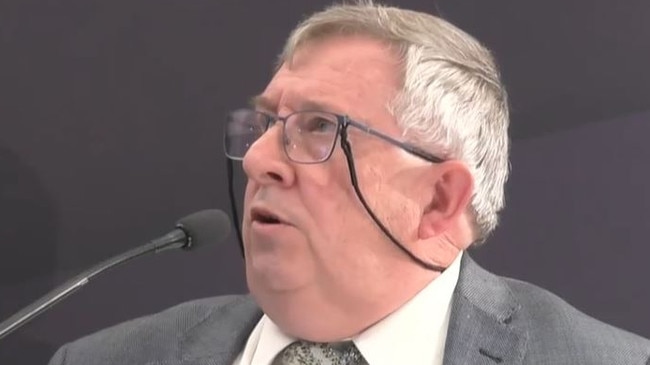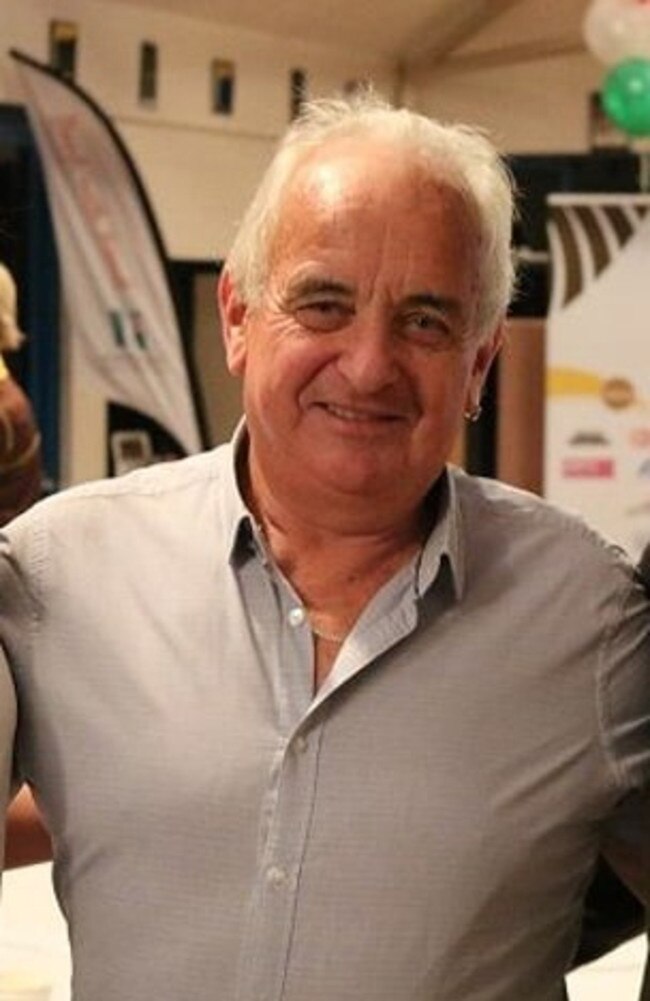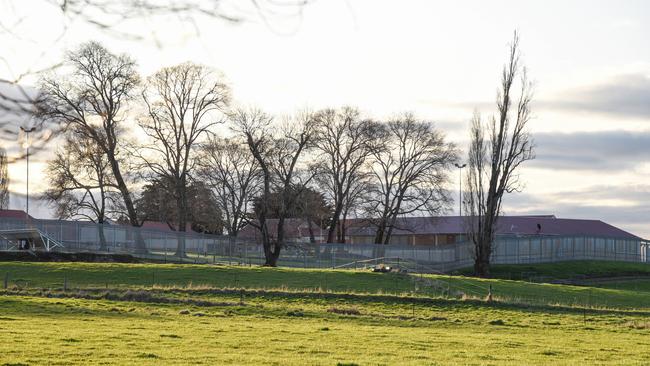Commission of Inquiry report finds serious failings at LGH and Ashley Youth Detention Centre
The long-running inquiry into child sexual abuse in Tasmanian government institutions has found grave failings in multiple government agencies. Here is what you need to know.

Tasmania
Don't miss out on the headlines from Tasmania. Followed categories will be added to My News.
The long-running inquiry into child sexual abuse in Tasmanian government institutions has found grave failings in multiple government agencies.
The final report of the Commission of Inquiry into the Tasmanian Government’s responses to Child Sexual Abuse in Institutional Settings has been tabled in state parliament by Premier Jeremy Rockliff.
It has recommended the immediate closure of the Ashley Youth Detention Centre, the outsourcing of out-of-home care to non-government agencies, a new Commission for Children and Young People and a ban on strip searches for young people in custody.
Titled “Who was looking after me? Prioritising the safety of Tasmanian children,” the 3,000 page report contains 75 findings and 191 recommendations.
It made findings of serious failures relating to longstanding allegations of abuse in government settings.
‘While we saw pockets of good practice, this was often a result of the initiative and good judgment of individuals rather than something encouraged and enforced by a broader system,” the report said.
“More commonly, institutions did not recognise child sexual abuse for what it was and failed to act decisively to manage risks and investigate complaints.
“Sometimes this was due to a lack of guidance and direction on how to manage incidents well but, also, due to ignorance, inertia and a desire to protect reputational interests.
“Too often, institutions did not effectively manage active risks to children and young people or extend adequate care when they disclosed abuse.”
The report finds that the handling of claims of child sexual abuse against a Launceston General Hospital nurse were seriously bungled by multiple agencies.
“Leadership at Launceston General Hospital was dysfunctional and this compromised its collective response to revelations about James Griffin,” the report says.
“The response of Launceston General Hospital to revelations about James Griffin’s offending was passive and ineffective.
“Launceston General Hospital failed to respond appropriately to Kylee Pearn’s disclosure of abuse by James Griffin in 2011 or 2012, leaving children exposed to potential risk for eight years.

“Tasmania Police failed to act on highly probative evidence regarding James Griffin provided by the Australian Federal Police in 2015.”
The commission found that the hospital’s Executive Director of Medical Services Peter Renshaw “misled the Secretary of the Department about James Griffin” and “misled our Commission of Inquiry about his state of knowledge”.
It also found he “failed to comply with Launceston General Hospital’s protocol for reporting and management of cases of suspected child abuse and “failed to comply with his mandatory reporting obligations in a timely manner, which impacted on the ability to gather evidence and future investigations”.
The report also found that abuse of children was rife at the Ashley Youth Detention Centre.
“For decades, some children and young people detained at Ashley Youth Detention Centre experienced systematic harm and abuse,” the report said.
“The use of isolation as a form of behaviour management, punishment or cruelty and contrary to the Youth Justice Act has been a regular and persistent practice at Ashley Youth Detention Centre since at least the early 2000s, and the conditions that enabled this practice still exist today.

“The Department, and sometimes the Tasmanian Government, have been on notice about potentially unlawful isolation practices at Ashley Youth Detention Centre since at least 2013, and have not taken sufficient action.”
The report expressed concerns about the timeline for closing Ashley.
“We were disappointed that there are some indications the Tasmanian Government
is reconsidering its previous announcement to close the Centre by 2024.
“We hold grave concerns for the safety and wellbeing of all detainees at the Centre.
“While we acknowledge that the process of replacing Ashley Youth Detention Centre is complex, we consider the closure of the Centre should be treated with urgency.”
Commission President Marcia Neave handed the Commission’s final report to Tasmanian Governor Barbara Baker on August 31.
Earlier, Mr Rockliff told Parliament the government has not made any additional redaction to the report.
Among the key recommendations:
* The Tasmanian Government should close Ashley Youth Detention Centre as soon as possible. Once Ashley Youth Detention Centre is closed, the Tasmanian Government should establish a memorial to victim-survivors who experienced abuse at the Centre.
* The Department for Education, Children and Young People should outsource the provision of all forms of out of home care to the non-government sector. The outsourcing of the provision of out of home care should be achieved through an orderly, staged and trauma-informed transition process and commissioning strategy.
* The Tasmanian Government should establish a statutory Commission for Children and Young People, which includes the following roles, each appointed for a term of five years: a Commissioner for Children and Young People, a Commissioner for Aboriginal Children and Young People, a Child Advocate (Deputy Commissioner).
* The Department for Education, Children and Young People should introduce and fund a mandatory child sexual abuse prevention curriculum as part of the mandatory respectful behaviours curriculum from early learning programs to Year 12.
* The Tasmanian Government should introduce legislation to amend the Youth Justice Act 1997 to ensure the Act expressly prohibits fully unclothed searches of children and young people in detention.
* The Department for Education, Children and Young People should introduce body scanner technology at Ashley Youth Detention Centre and include such technology in any facility designed to replace the Centre.
* The Tasmanian Government should introduce legislation to amend the Youth Justice Act 1997 to make clear that confining a detainee in their room or unit and preventing them from having contact with other detainees (other than overnight) constitutes isolation … and makes it a criminal offence for a person to punish a detainee by isolating them or causing them to be isolated.
* The Department of Health, Launceston General Hospital and Tasmania Police should make clear that they will continue to assist, on an ongoing basis, known and as yet unknown victim-survivors of child sexual abuse by James Griffin related to the hospital and should nominate a contact person for people who have enquiries.
* The Tasmanian Government should increase the capacity of the Victims of Crime Service.
* The Tasmanian Government should fund and establish specialist units in Tasmania Police, based on the Victorian Sexual Offences and Child Abuse Investigation Teams model, to investigate child sexual abuse and to be based in Hobart, Launceston and the North West.
* The Tasmanian Government should maintain a central cross-government register of misconduct concerning complaints and concerns about child sexual abuse and related conduct. This register should contain records of substantiated and unsubstantiated matters, including those that did not proceed to investigation.
* The Tasmanian Government should ensure preventive programs for adults who are at risk of abusing, or have abused, children are available beyond the custodial setting.
* The Department for Education, Children and Young People should work with the Catholic and independent school sectors to adopt a statewide approach to responding to child sexual abuse in schools.
* The Department for Education, Children and Young People should ensure all children in care, including those on guardianship orders until age 18, have a case manager [and] set a maximum case load for Child Safety Officers.
Among the key findings:
Findings relating to allegations of abuse at the Ashley Youth Detention Centre:
* For decades, some children and young people detained at Ashley Youth Detention Centre experienced systematic harm and abuse.
* The Department should have fully investigated allegations that staff at Ashley Youth Detention Centre used older detainees to threaten or control younger detainees.
* The use of isolation as a form of behaviour management, punishment
or cruelty and contrary to the Youth Justice Act has been a regular and persistent
practice at Ashley Youth Detention Centre.
* The Department, and sometimes the Tasmanian Government, have been
on notice about potentially unlawful isolation practices at Ashley Youth Detention
Centre since at least 2013, and have not taken sufficient action.
* Tasmania Police should improve its responses to allegations of child sexual abuse made by current and former detainees at Ashley Youth Detention Centre.
Findings relating to allegations of child sexual abuse at the Launceston General Hospital:
* Launceston General Hospital leadership collectively failed to address a toxic culture in Ward 4K that enabled James Griffin’s offending to continue and prevented his conduct being reported
* Launceston General Hospital failed to manage the risks posed by James Griffin.
* The response of Launceston General Hospital to complaints about James Griffin suggested it was ultimately not concerned about his conduct.
* The response of Launceston General Hospital to revelations about James Griffin’s offending was passive and ineffective
* Tasmania Police failed to act on highly probative evidence regarding James Griffin provided by the Australian Federal Police in 2015
* Dr Peter Renshaw misled the Chief Executive of Launceston General Hospital and the then Secretary of the Department by failing to fully and accurately convey information relating to James Griffin received from Tasmania Police on 31 July 2019.
* Dr Peter Renshaw failed to comply with Launceston General Hospital’s protocol for reporting and management of cases of suspected child abuse and failed to comply with his mandatory reporting obligations in a timely manner.
* Dr Peter Renshaw misled the Secretary of the Department about James Griffin.
* Dr Peter Renshaw misled our Commission of Inquiry about his state of knowledge.
If you need support, contact the services listed below, which are free and confidential. Support is available by phone and/or face-to-face:
– Lifeline: 13 11 14 or www.lifelinetasmania.org.au.
– Tasmanian Lifeline: 1800 98 44 34
– Statewide Sexual Assault Support Line (Sexual Assault Support Service and Laurel House): 1800 697 877.
– Relationships Australia Tasmania: 1300 364 277.





